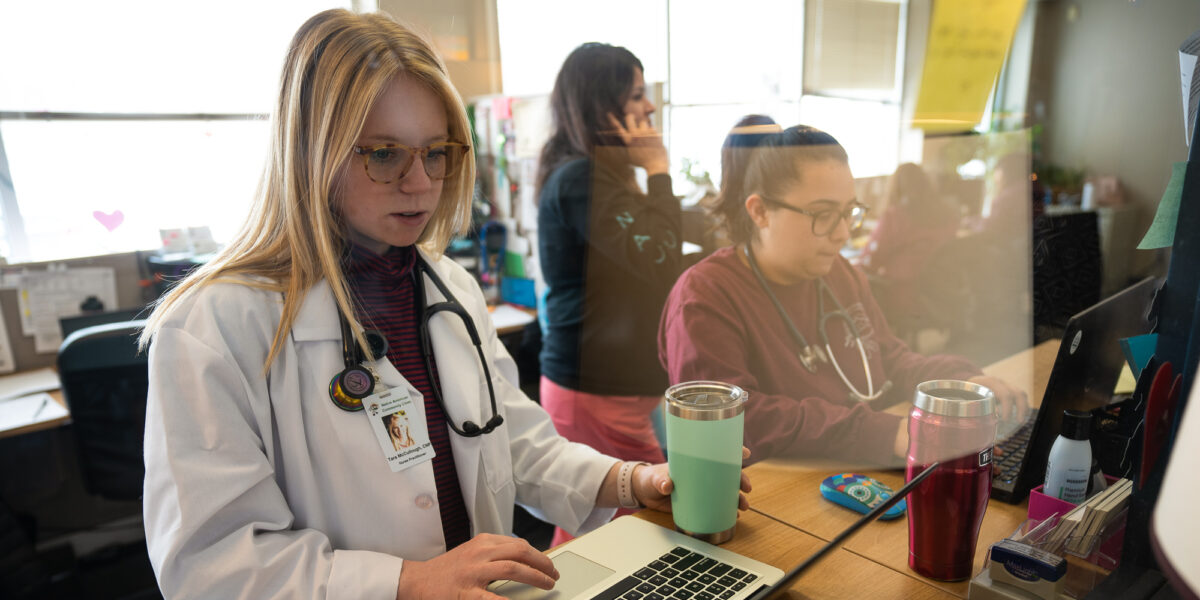As we enter the new year 2022, we also enter the time of new COVID Variants and guidelines. Reporter Emma Needham caught up with Dr. Antony Stately to get a little clarity as we enter year three of the COVID 19 Pandemic.
The new year brought the new Omicron COVID 19 Variant and new CDC Guidelines for quarantine. The omicron Variant is significantly more contagious than its predecessor, the Delta Variant. At the same time, the Center for Disease Control, the CDC, has shortened the time for quarantine after exposure to or infection of known COVID 19 from 10 days to 5 days.
Dr. Antony Stately is the executive officer and president of the Native American Community Clinic in Minneapolis. He explains the CDC guideline changes in more details.
AS: My understanding is that the reduction of 10 days of quarantining to five days, is focused primarily on individuals who are delivering critical services to the public. Right? So like health care workers, educators, police, fire, emergency services, airline personnel, those kinds of things…that, after exposure are becoming infected the quarantine for five days, if after five days, you’re not symptomatic in any way, shape, or form, then you need to take a test. And if you’re negative, you can return back to work after one or two, negative tests. if you have positive symptoms, meaning like you have some of the core symptoms that seem to suggest that you’re still infectious, then after five days, and then you’re being asked to continue to quarantine up until up until 10 days, or until you’re not symptomatic and test negative.
I think it’s specifically really critical that we’re telling that we’re trying to help people understand that the real critical point five days is like the questions to answer are like, Are you ill? Are you symptomatic? If the answer is yes, then we’re telling people “Stay home.”
Dr. Stately says regular testing for COVID 19 is critical. Home tests have come a long way and are becoming more widely used, though they’re availability fluctuates. Dr. Stately explains how best to use at home testing kits.
AS: I know people want to sort of like buy one kit and use both tests inside the kit to test multiple people in their home. That’s now exactly how the kit was designed to be used. They’re encouraging people to take one test today, like, let’s say you’re gonna test today, and then use the other test in two to three days to test again, right? That’s important to do, because what we know is that, you know, the, the incubation ….is different for everybody.
As we continue into 2022, some of the only certainty we have is uncertainty about COVID 19. Dr. Stately sends a message of resiliency for Minnesota’s Native Communities.
AS: I want to encourage members in our community and the people that are listening to this broadcast the broadcast to just remember we are resilient people, but we’re not impervious. One of the things that we are able to do as a community is pull to ensure that there’s the seventh generation. And we can only do that if everybody pulls their weight.
If you or someone you know has questions about COVID-19, vaccinations, booster shots or testing, you can call the Twin Cities American Indian COVID 19 Hotline. This hotline was created by the Department of Indian work, St. Paul and the Minnesota Department of Health. They provide information on vaccines, booster shots and testing sites. The Twin Cities American Indian COVID-19 hotline can also help with housing, food, medical or educational support. The Twin Cities American Indian COVID-19 hotline is open for calls Monday through Friday from 8am to 5pm by calling 651-304-9986. Again, that number is 651-304-9986.
Emma Needham reporting for Minnesota Native News.
Minnesota Native News is produced by AMPERS- Diverse Radio for Minnesota’s Communities. Made possible by funding from the Minnesota Arts and Cultural Heritage Fund and the citizens of Minnesota.
Subscribe to Minnesota Native News in your favorite podcast app
- New Native Theatre’s 15th Year & REAL IDThis week, how REAL ID requirements impact Indigenous people, especially Two-Spirit individuals. Also, New Native Theatre’s latest play runs April 16-May 4.
- Ziigwan Biidaajimowin (Spring News): NACC Issues Call for Artists and Little Earth Kicks Off American Indian Month with a ParadeThis week, Minneapolis’s Native American Community Clinic (NACC) seeks artists to commission pieces for their new building. Plus, nearby, the Little Earth of United Tribes housing community will kick off May’s American Indian Month with a celebration organized in part by the Minneapolis Public Schools American Indian Youth Council, Ogichida Oyate


 Dominique White’s Gift for Healthy Skin & Healthy Attitudes About Appearance
Dominique White’s Gift for Healthy Skin & Healthy Attitudes About Appearance